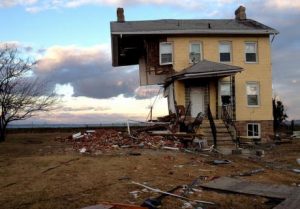
Are California probate sales a great deal or risky business?
If you are in the market for discounted properties, chances are you have encountered a probate sale. Probate sales are accompanied by a specific legal process that is different from the average sale of real estate. If you are looking at probate properties, it is important to be informed of the probate process to be prepared for the steps ahead.
The material presented below is for general informational purposes only and may not cover all of the intricacies and possibilities for a particular probate sale. Consult your licensed California real estate agent and legal council for further details.
What is a Probate Sale?
In California, a probate sale occurs for real property when a property owner dies without an instrument in place to protect the property from sale through the probate court. Usually the sale of such property will require court confirmation of the purchase price and will be open to overbidding.
How Does a Probate Sale Work?
In many aspects, a probate sale in California is handled similarly to a regular sale, with a few important distinctions. In a probate sale, the property is marketed just like any other property for sale. The probate attorney or estate representative will hire a local licensed California real estate agent, sign a listing agreement, and show the property, just like they would for a traditional listing.
Preparing the Property
If you are dealing with a probate property after the passing of a relative, rest assured that you will not have to make any repairs or alterations to the property. In fact, in California, probate properties are sold “as-is”, and if you make any repairs to the property, you may inadvertently conceal something about the condition of the property. Except for removing possessions or clearing out trash, it is important to leave the property in it’s present state and let the buyers do their inspections and satisfy themselves with the condition of the property.
Determining the List Price
The local licensed California real estate agent assigned to handle the marketing of the property will help with determining the list price. The agent will compile detailed market data and a comparative market analysis (CMA) to help determine the approximate value of the property. The court may also order and appraisal for the property to determine the market value.
For the most part, probate properties will be listed under market value due to the nature and conditions of a probate sale in California. The buyer of a probate property may get a great deal on a home, which is why many investors target probate properties. But keep in mind that probate sales do not contain many of the buyer safeguards that are present in traditional sales, so extensive due diligence prior to making an offer is a necessity.
Making an Offer
For probate sales in California, there are no inspection contingencies. Furthermore, because those helping to sell the property may never have lived in the property, you are not likely to receive a full property disclosure as is required in a traditional sale. A probate sale requires special disclosures, listing agreement, and purchase contract to conform to the regulations of the sale. Because buyers are compelled to waive inspection contingencies when making an offer on a probate property, any and all investigations must be done prior to submitting an offer.
An offer on a probate property in California must be accompanied by a 10% deposit. Once the offer is accepted, usually the accepted offer will still need court confirmation. The estate representative, through their probate attorney, will then petition the court to confirm the sale. A future date will be chosen for the sale to be confirmed by the court.
After an Accepted Offer
Once the sale date is determined, the parties must wait a minimum of 30-45 days before the court hearing. During this time, the court requires that the property be advertised and marketed with the new purchase price and the court confirmation date.
Going to Court
In California, in order for the sale to be confirmed, the court requires that the new buyer, along with any other interested party, attend the probate court hearing to confirm the sale. The property is then sold auction-style, open to overbidding from any interested party. If there are no overbids, the property will be sold to the original buyer at the originally accepted purchase price. All sales are final with no contingencies and the buyer’s deposit becomes non-refundable.
Overbidding
The court will set the price for the first overbid, which is usually 10% of the 1st $10,000 plus 5% of the balance of the accepted offer. A non-refundable 10% deposit in the form of a cashier’s check (no personal checks) is required upon the acceptance of any overbid.
Example: Accepted offer of $300,000
+ 10% of $10,000 = $1,000
+ 5% of $290,000 = $14,500
Minimum first overbid = $315,500
10% of $315,500 = $31,550 cashier’s check
Should I Purchase a Probate Property?
While probate sales often come with an attractive purchase price, it is important to keep in mind the risks involved when dealing with a probate property. Since the seller is deceased, there usually isn’t anyone to disclose a leaky window, illegal work done to the property, or anything else that many negatively affect the property’s value. There is no legal obligation to provide any of this information to a potential buyer, and often the sale requires all contingencies to be removed. Only make an offer on a probate property when you have satisfied yourself with your own investigations about the property condition and the local market values.
Probate sales in California take time. While the court requires a 30-45 day marketing period, sometimes it can take even longer to get your case before a judge. Meanwhile, your 10% deposit is being held along with your offer. In the worst-case scenario, after your offer has been accepted and you have waited several weeks for the court date, there is always the possibility that you will be outbid in court and have to start the home search all over again.
Probate sales in California can be as frustrating as they are advantageous. Review your situation and the probate process carefully before deciding whether or not to entertain probate sales in your home search.




